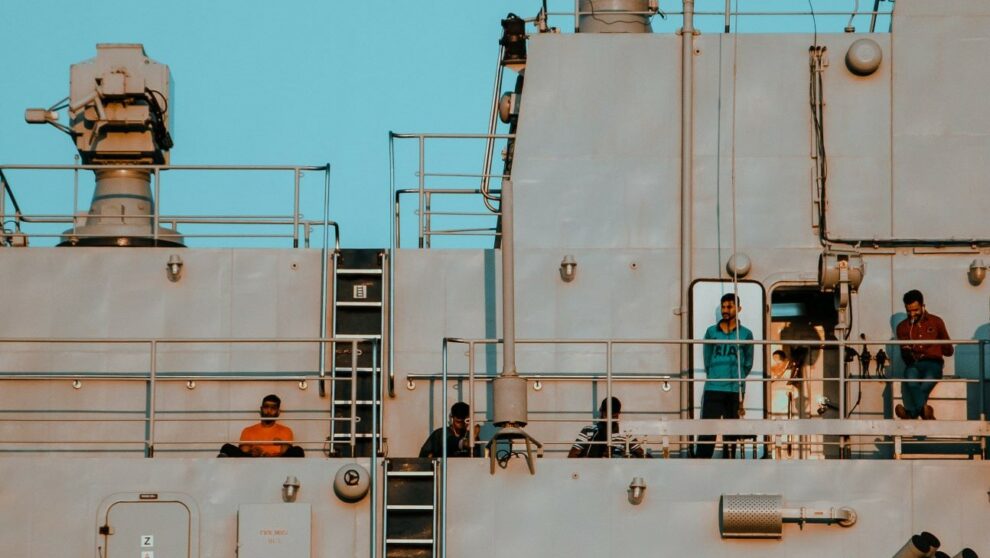The global shipping industry is stepping up calls for the United Nations and aid groups to help evacuate hundreds of seafarers on more than 60 merchant vessels that are still stuck in Ukrainian ports a year after Russia’s invasion.
In the weeks after the war began, some 2,000 crew members were caught in the crossfire on ships in the Black Sea and the Sea of Azov. Safe corridors helped reduce that number in the months that followed. But the total remaining stands at an estimated 331 seafarers on 62 vessels — a mix of bulk carriers, one container ship, oil and chemical tankers, a few hopper dredges, an ice breaker and a tug.
To mark the one-year anniversary this week, the International Chamber of Shipping and more than 30 other industry participants sent a letter calling on UN Secretary-General Antonio Guterres “to address this matter urgently.”
“We did not want them to be forgotten, because of course there’s been a great success with the grain initiative: three ports are open, ships are able to go and come carrying grain with an inspection regime in place,” said Guy Platten, secretary general of the ICS. “I don’t want to detract from the success of that, and long may it continue, but we’ve still got these residual numbers of ships which are still unable to sail.”
The only ships allowed to move safely through the area are those approved under the UN’s Black Sea Grain Initiative.
Most deckhands hail from developing countries and are accustomed to extended stretches as sea, but two years of shipping disruptions through the pandemic forced many of them to work long after their contracts expired.
Platten said the seafarers unable to leave the war zone are from 15 countries: Azerbaijan, Bangladesh, China, Egypt, Georgia, Ghana, Greece, India, Indonesia, Lebanon, the Philippines, Russia, Syria, Turkey and Ukraine.
Stella Maris, a maritime charity in the UK, said that it’s been offering food parcels to the isolated crews and that in January, a chaplain under military escort resumed regular visits to ships docked in Odesa.
“We just need to keep pushing the issue and raise it up, and hopefully then start that negotiation on the diplomatic solution, which is essentially to get the ships to sail,” Platten said. “Not to come back — but just to sail away.”















